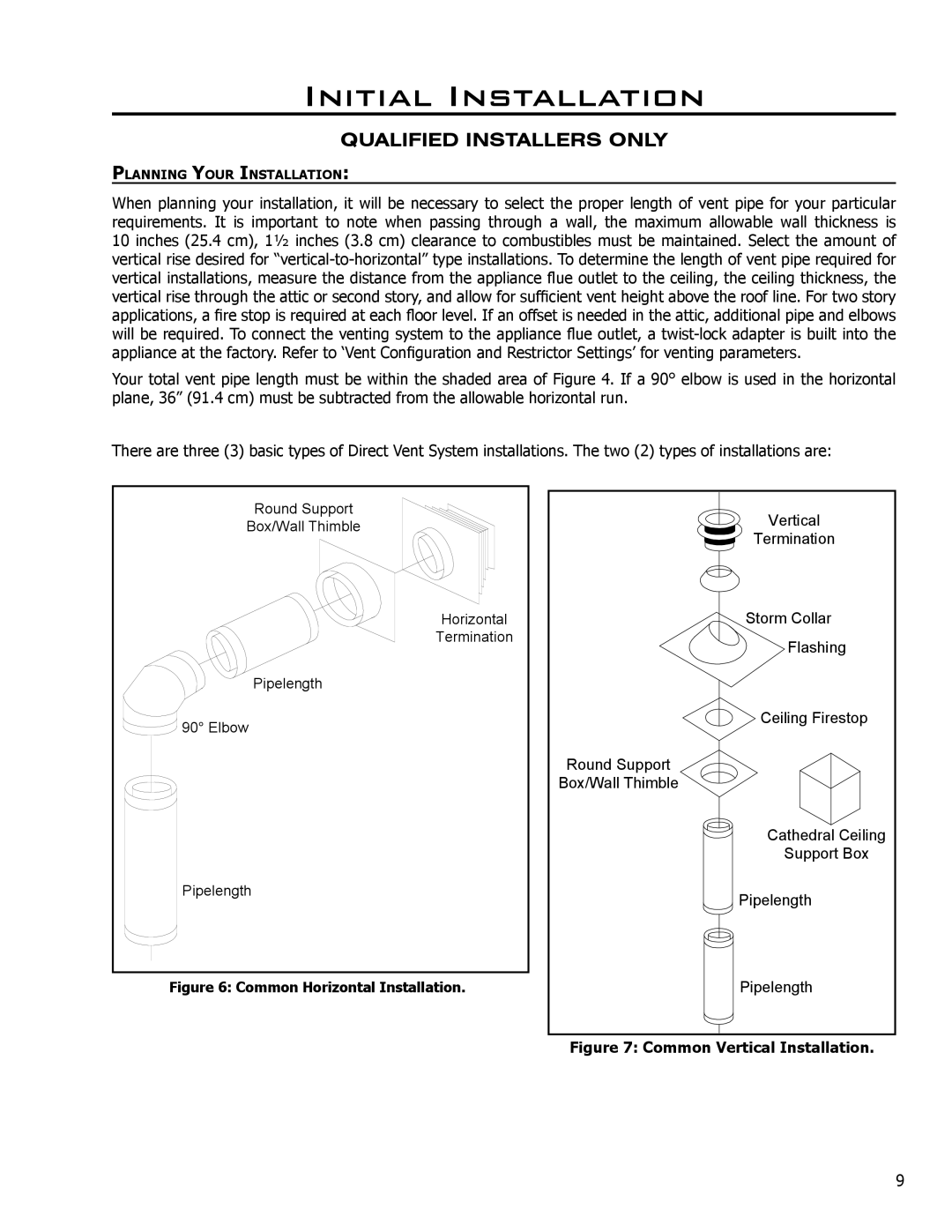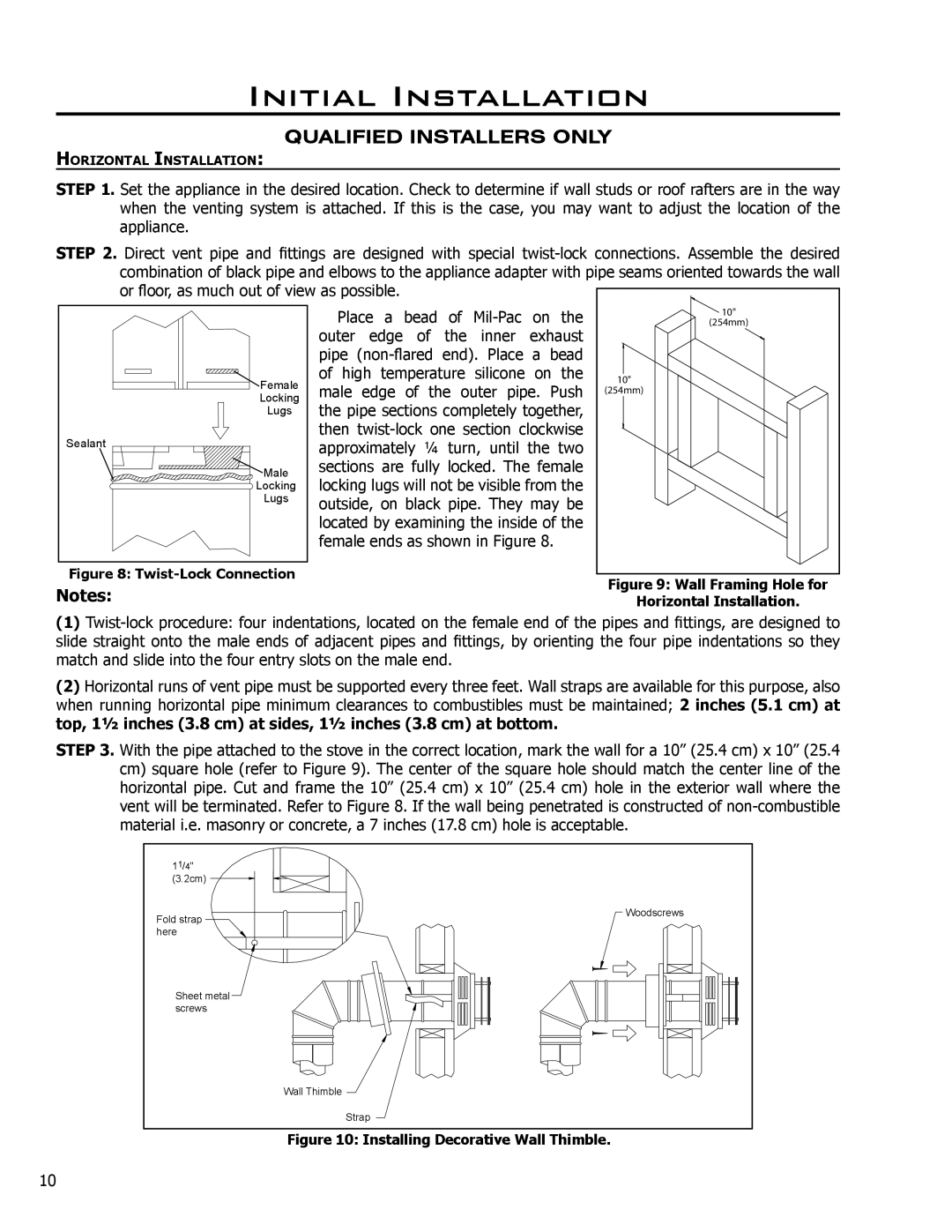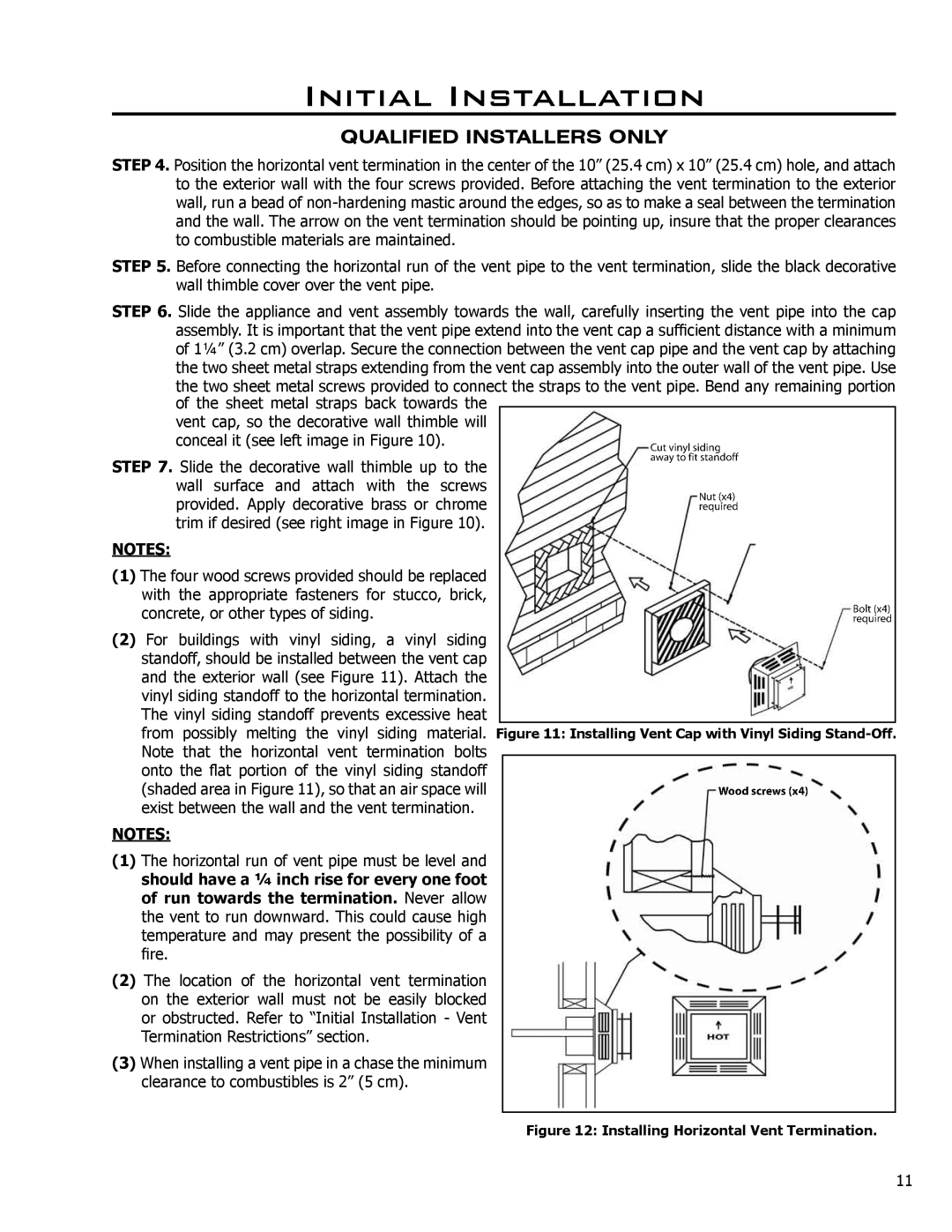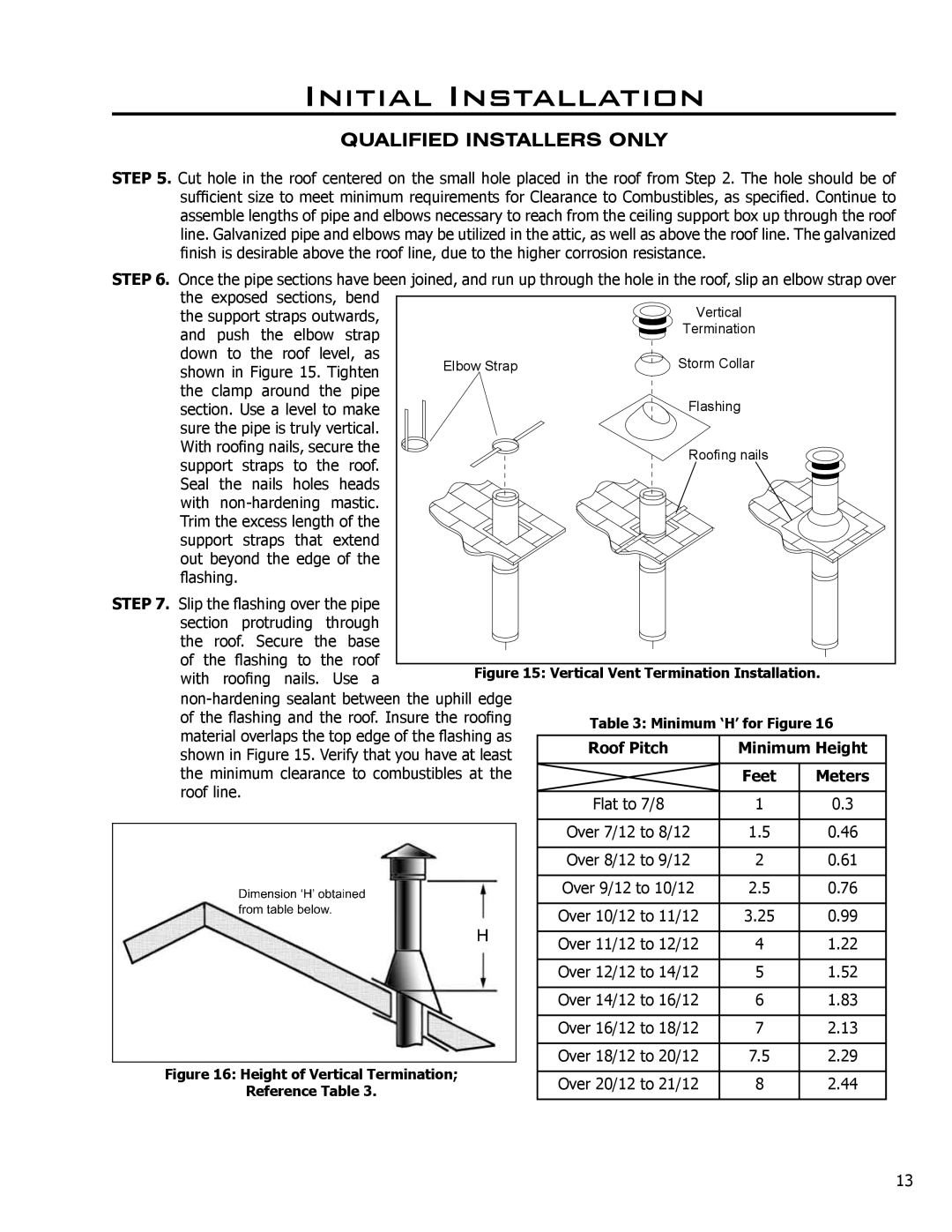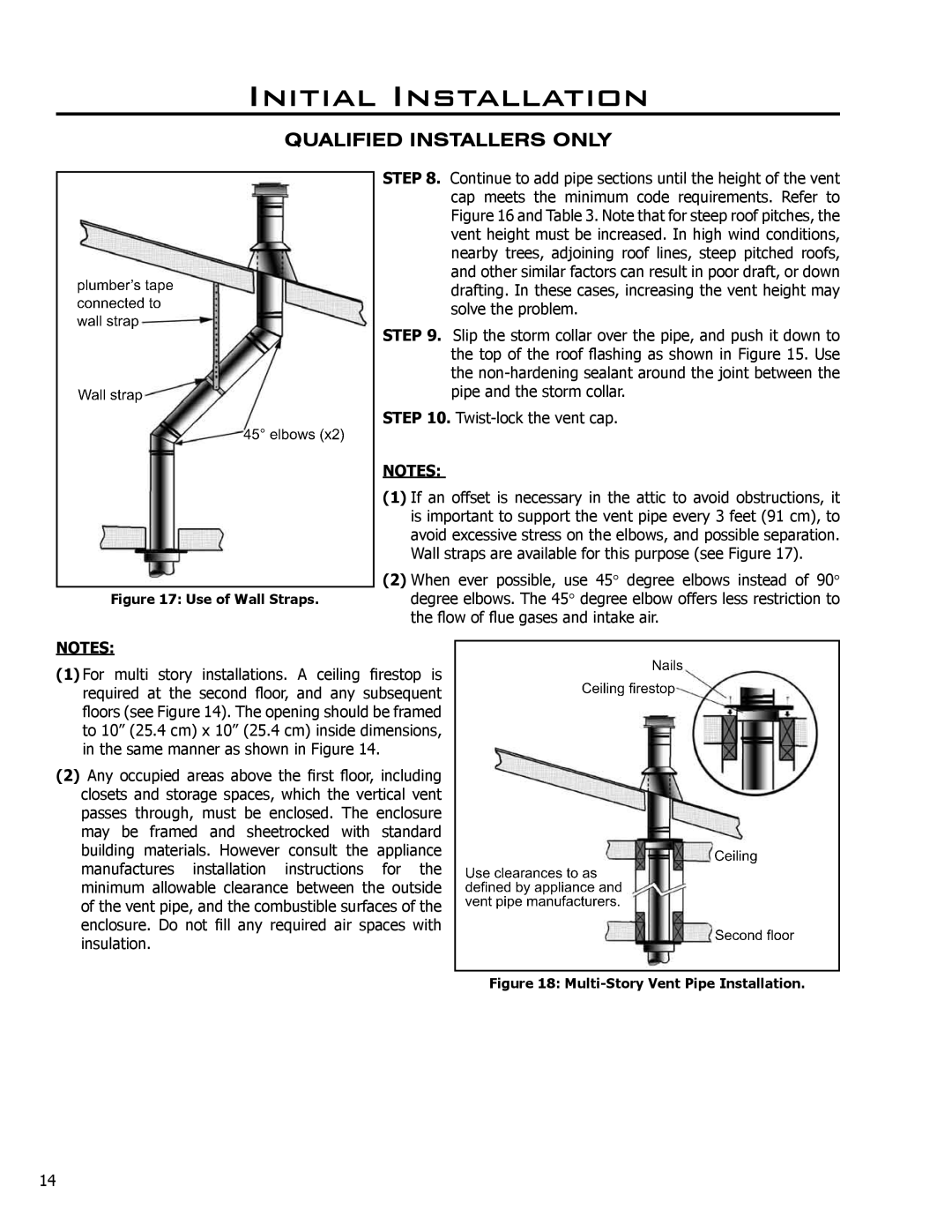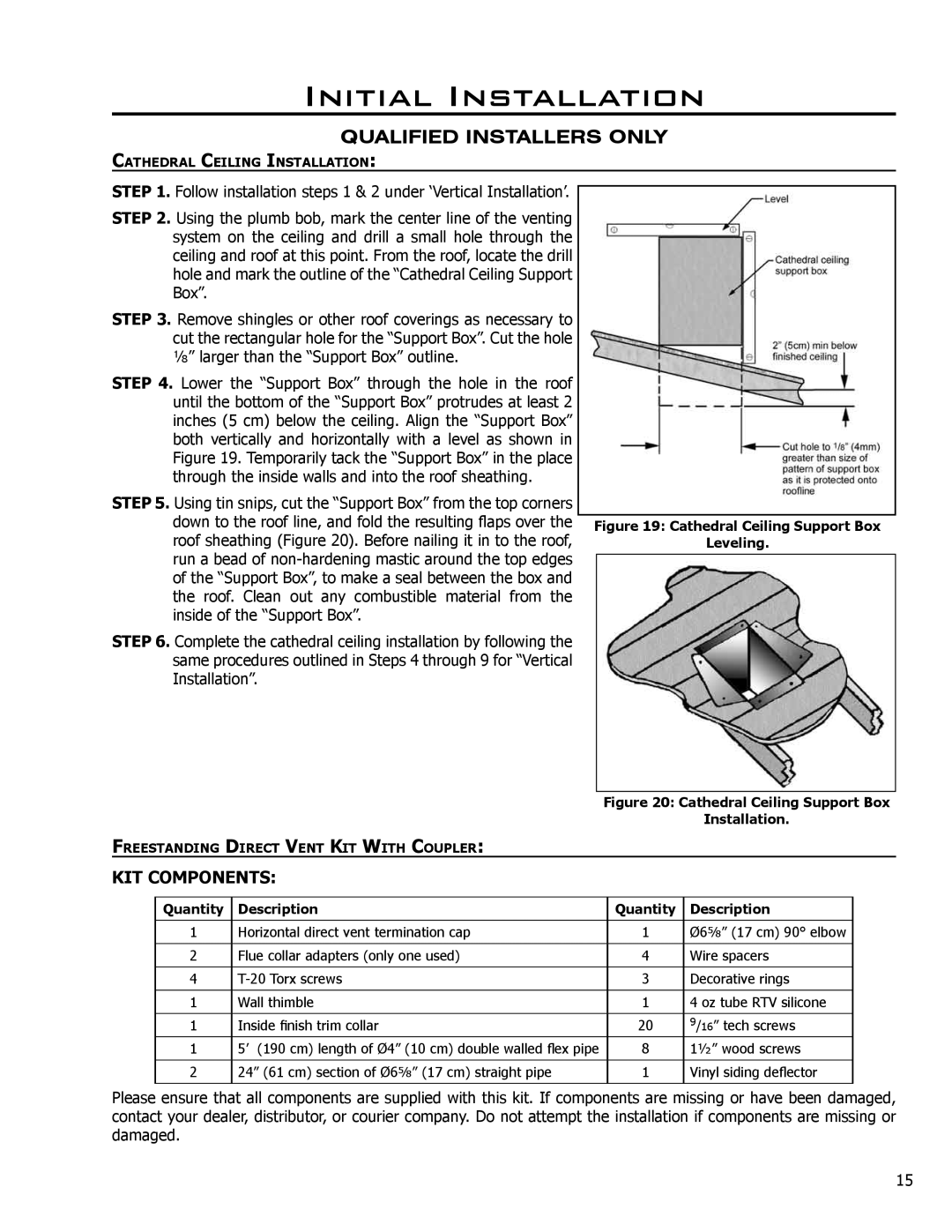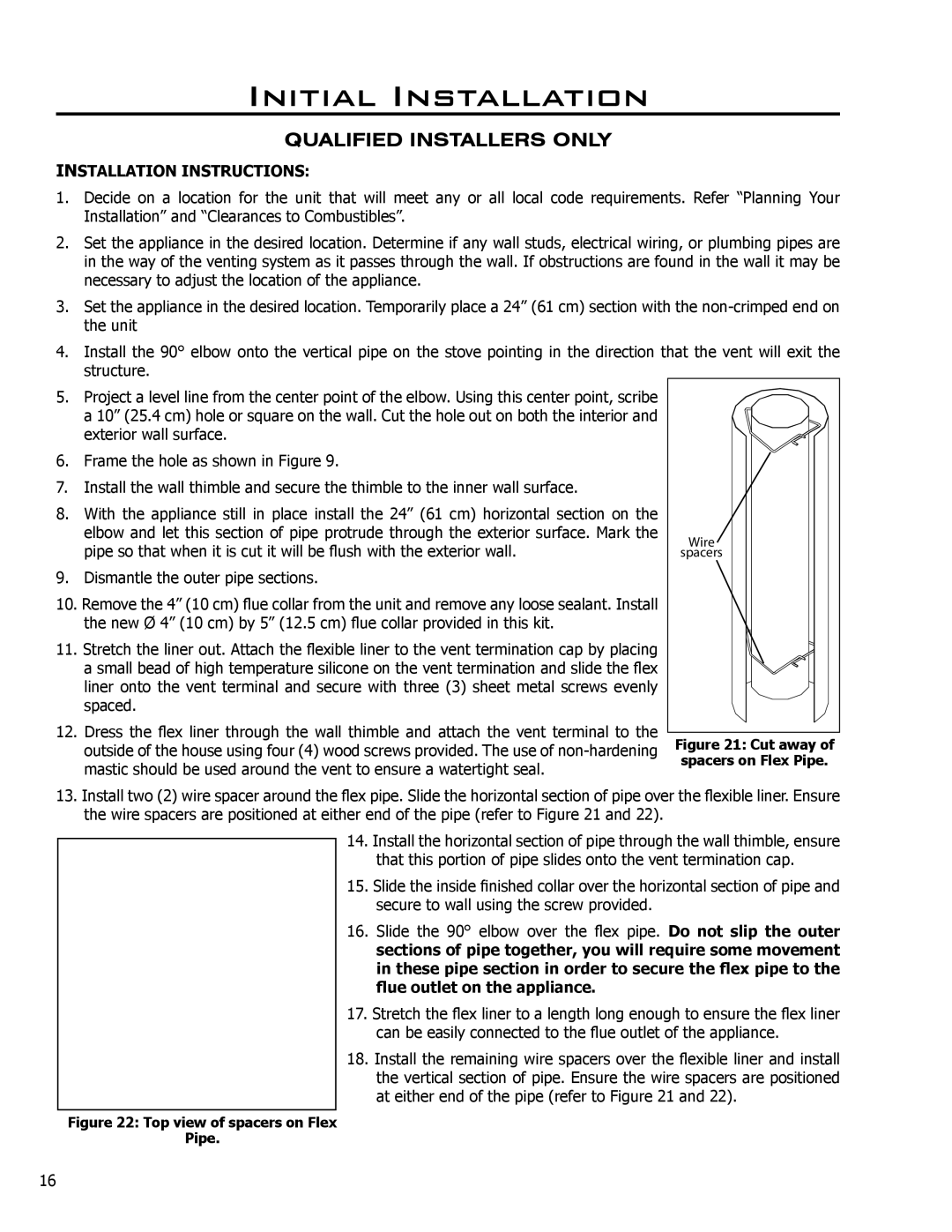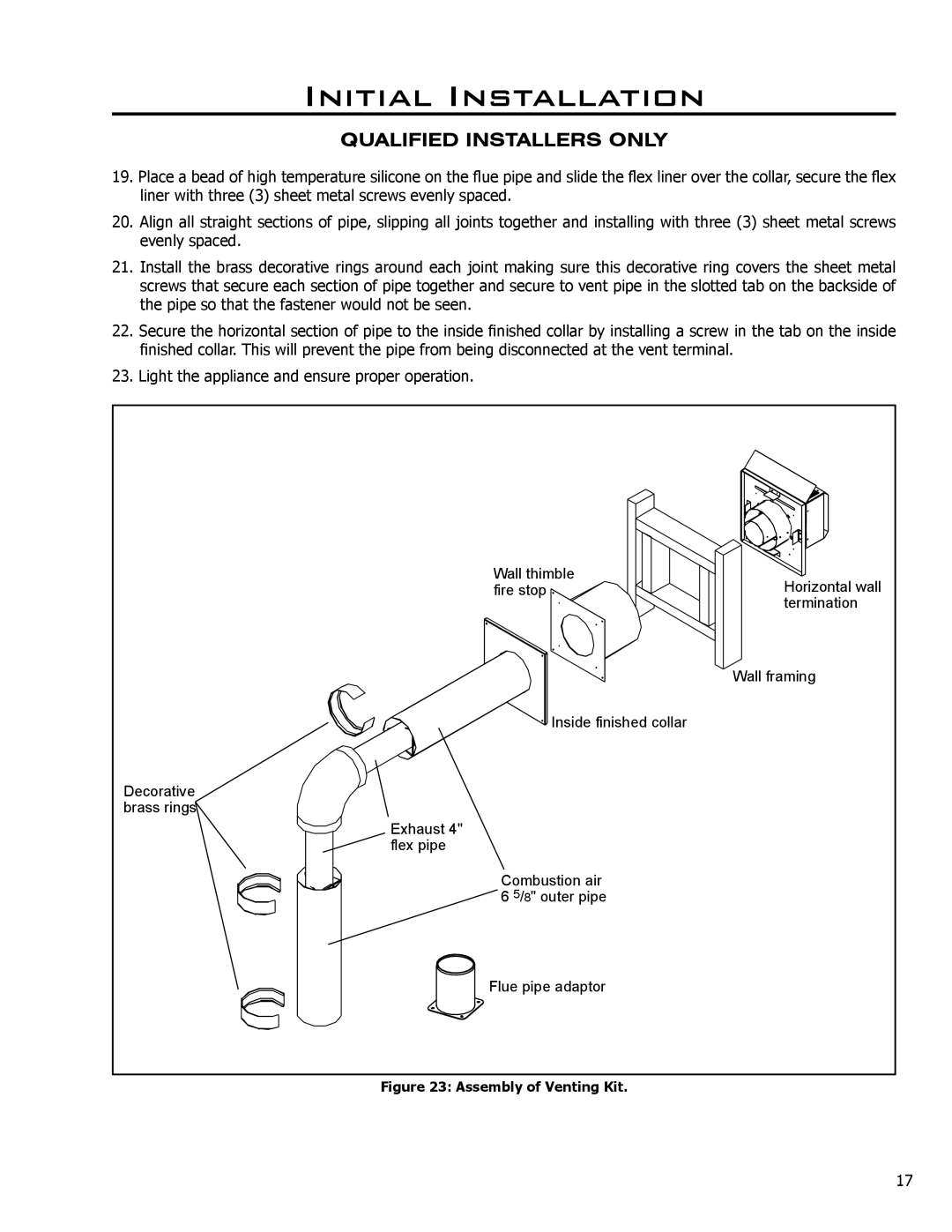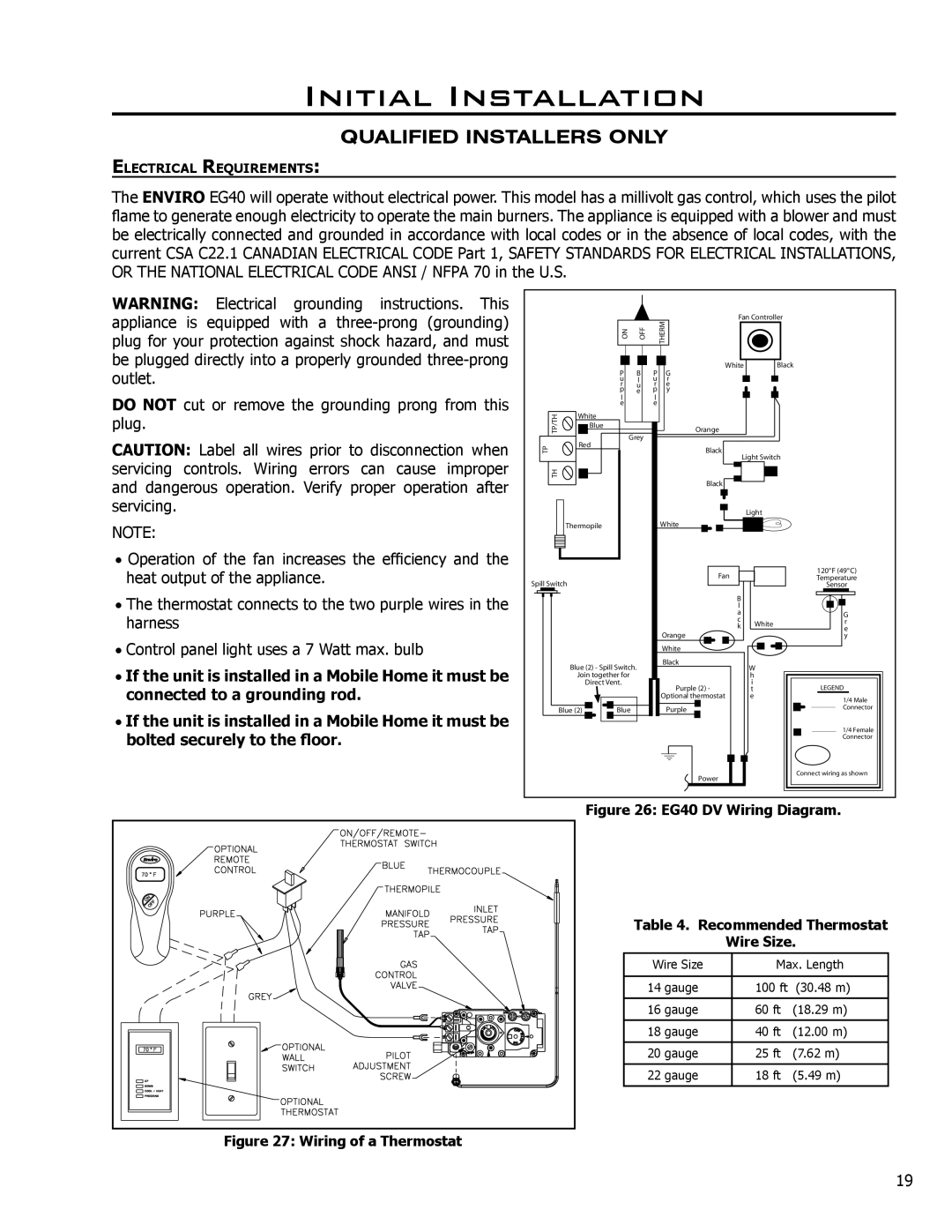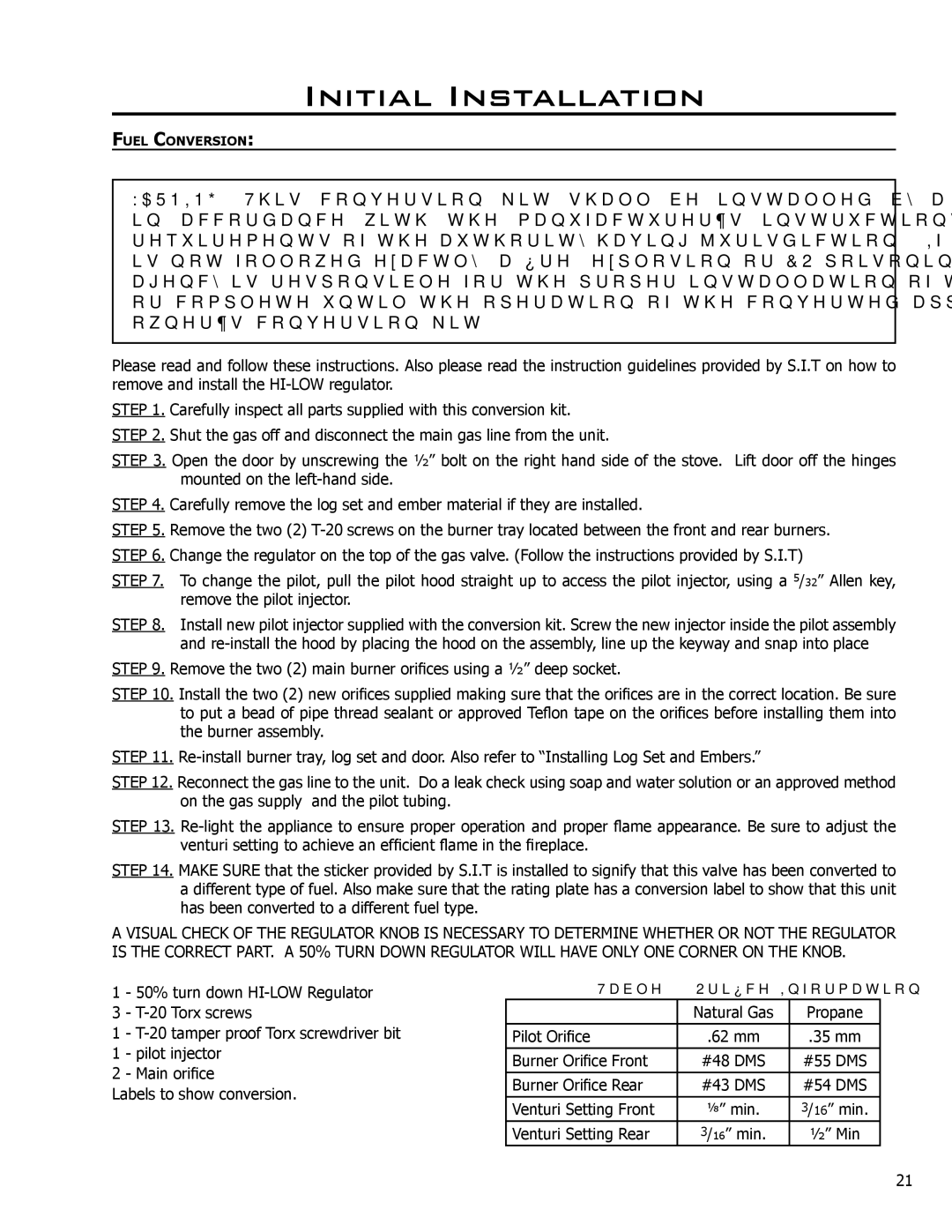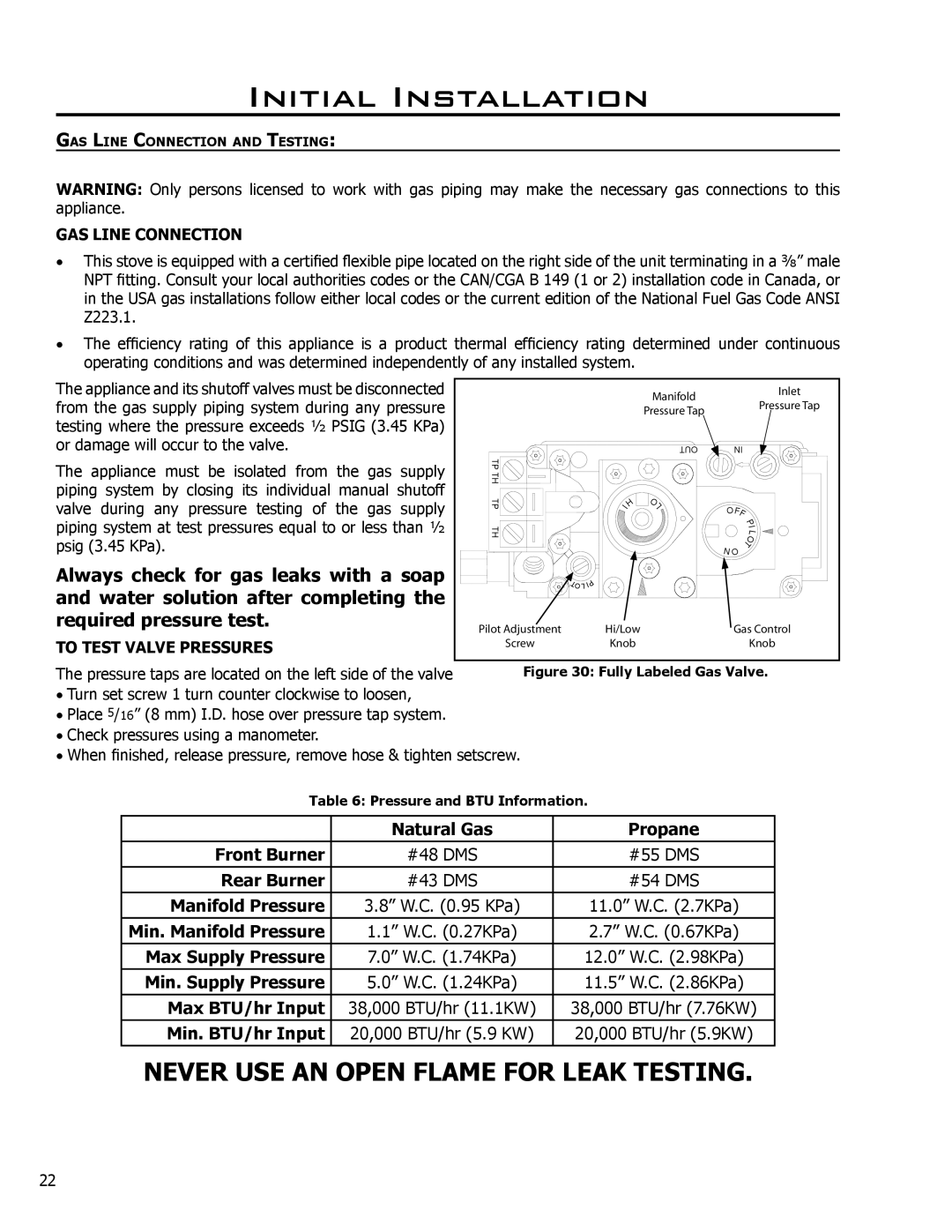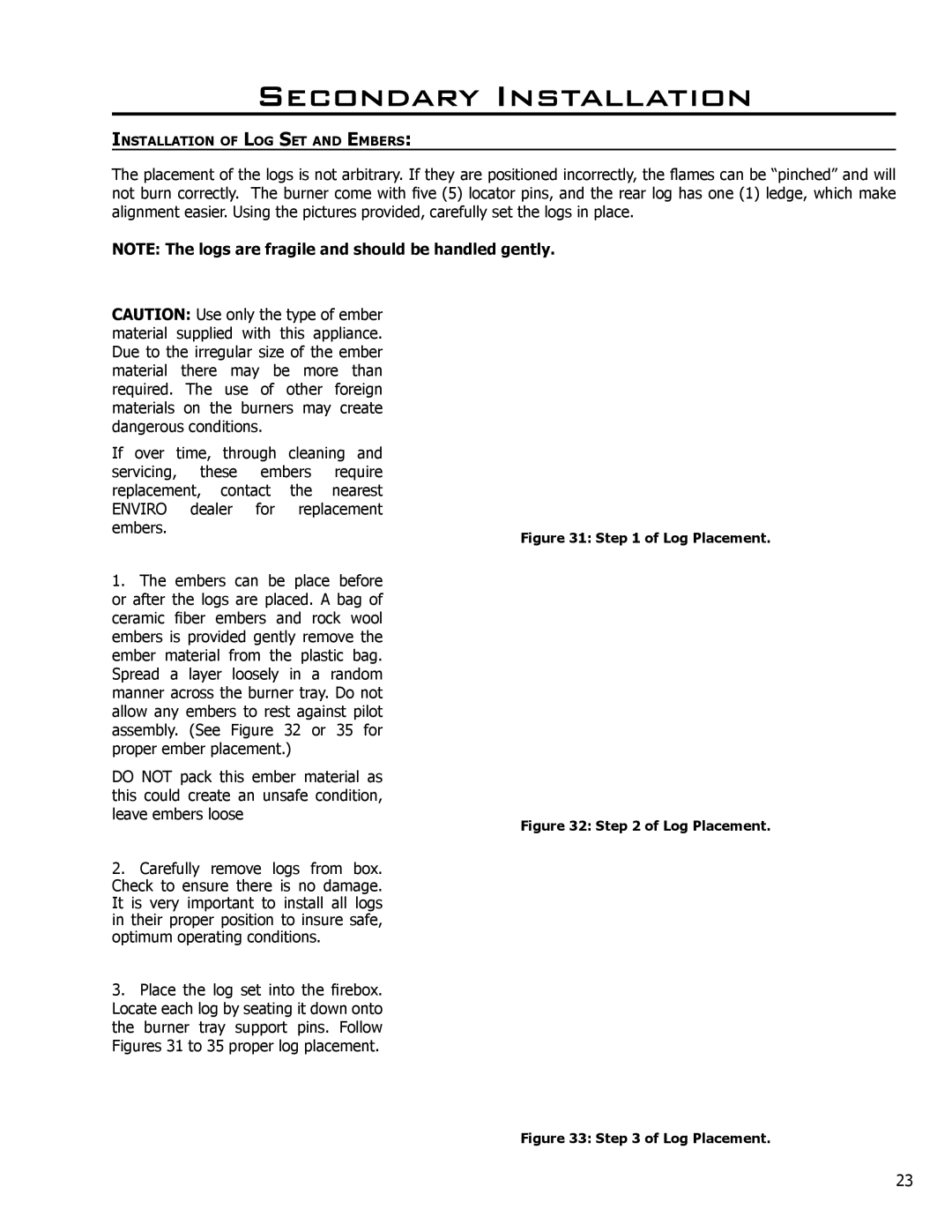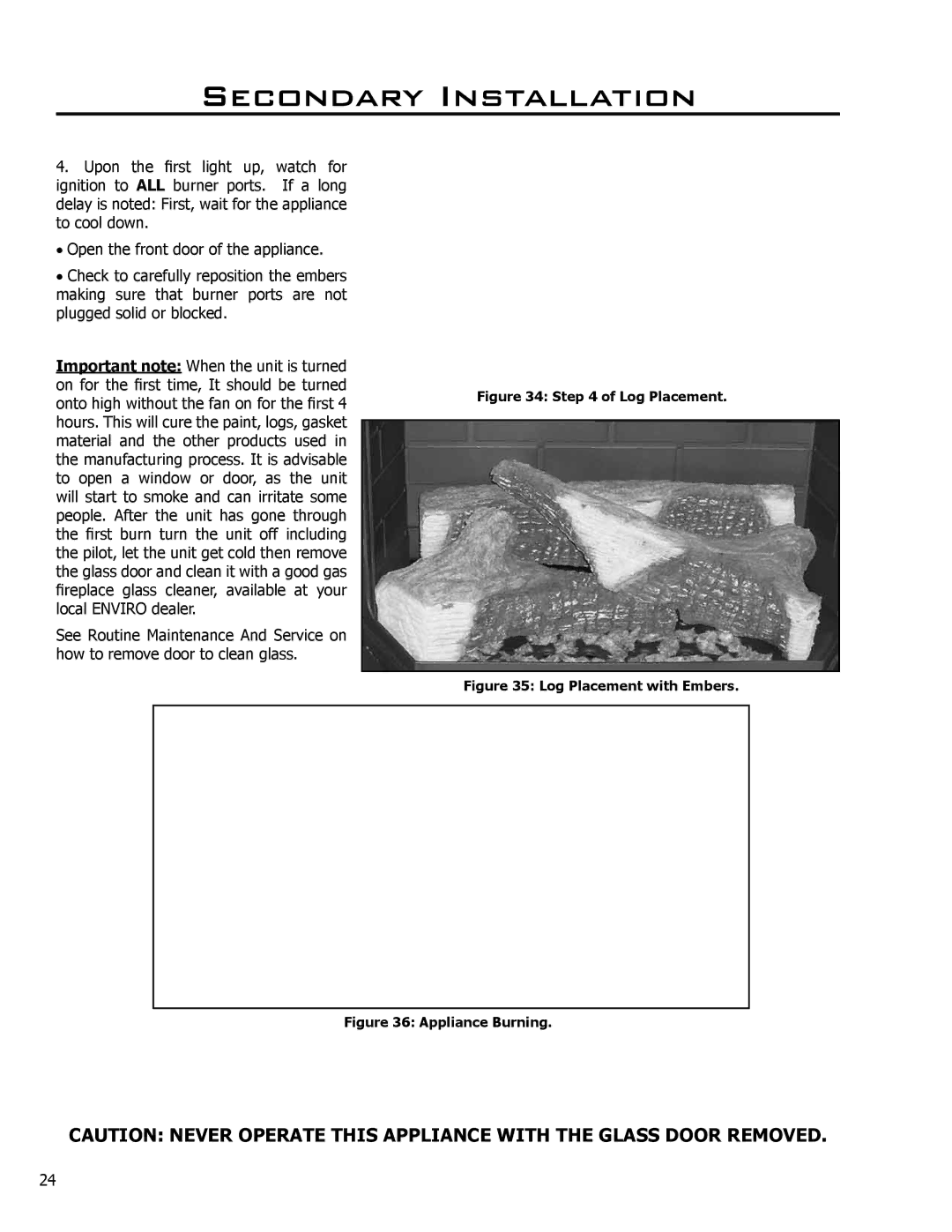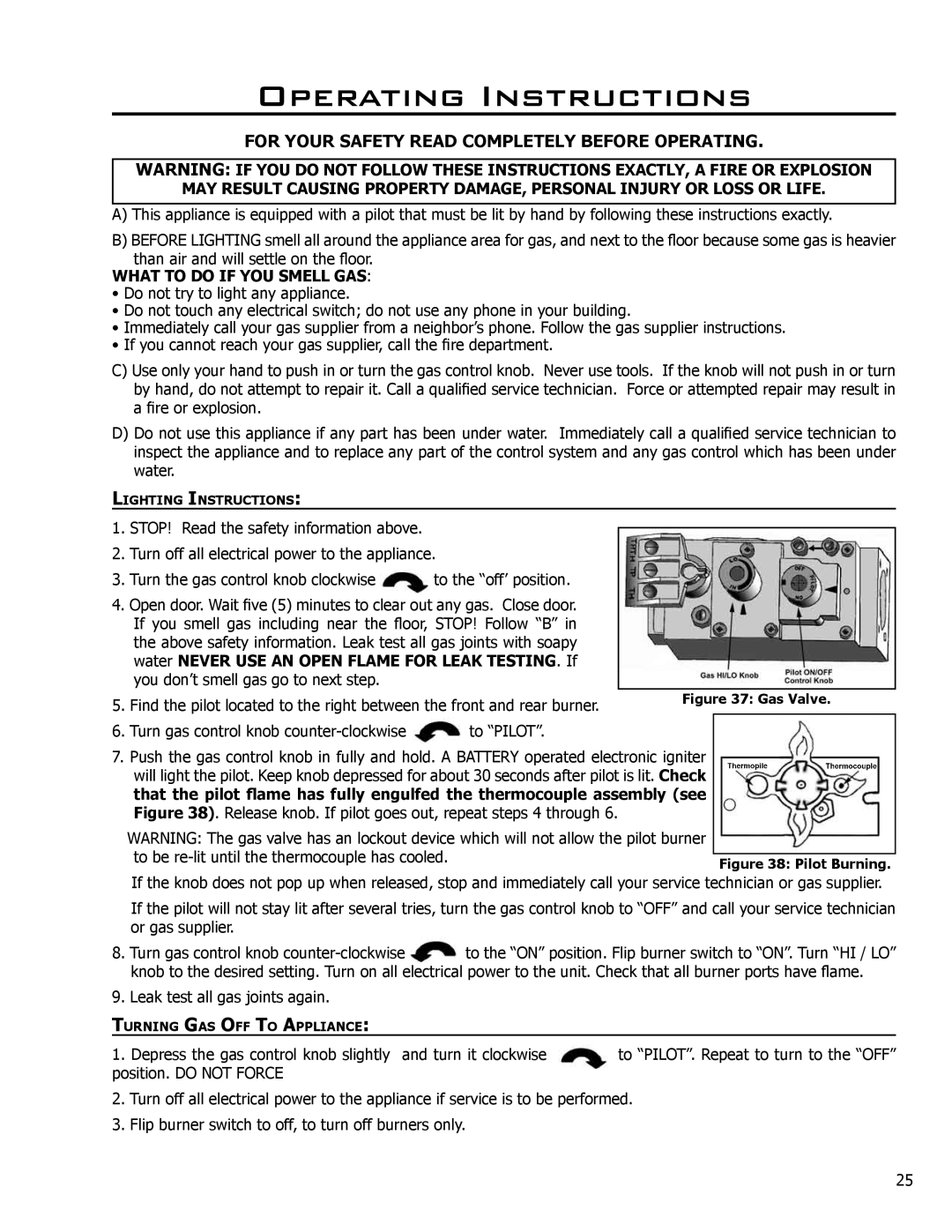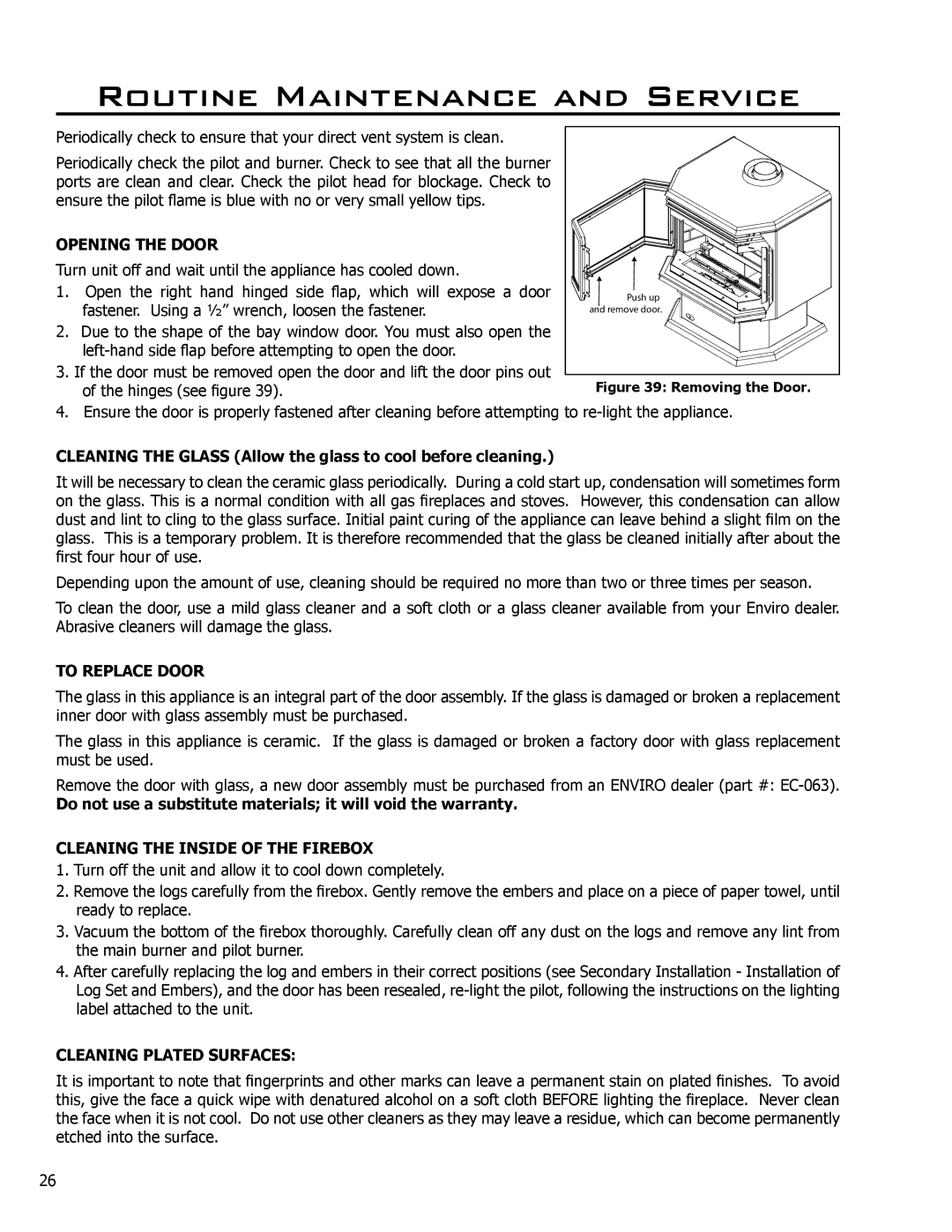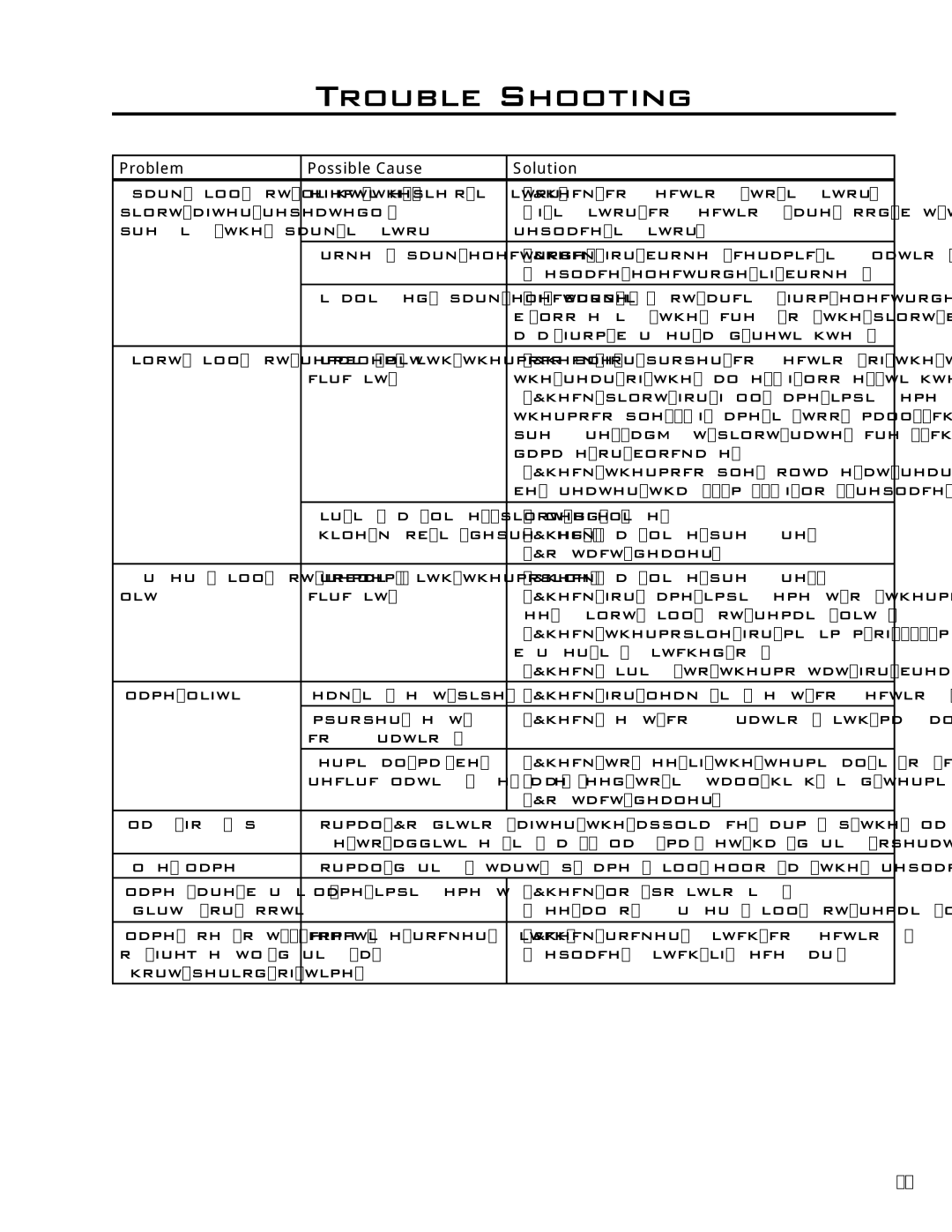
Initial Installation
QUALIFIED INSTALLERS ONLY
VENT CONFIGURATIONS:
Figures 4 shows the range of venting options, it shows possible vent configurations if the unit is top vented, for vertical and horizontal terminations, any layout that remains within the shaded area is acceptable. Having the fewest number of elbows is ideal, as they tend to disrupt air movement. Using 45˚ elbows is preferable to using 90˚ elbows. Also, a shorter vent system will perform better than a longer one.
NOTE: The total length of the vent pipes can not exceed 33 feet (10.1 m). Any combination of rise and run can be used as long as it lays within the shaded area (a total of three (3) 90° elbows or six (6) 45° elbows can be used). In addition to what is shown, if a 90° elbow is used in the horizontal plane, 3 feet (91.4 cm) must be subtracted from the allowable horizontal run (for each 45° elbow, 11⁄2 feet must be subtracted from the allowable horizontal run).
Figure 4. Possible Vent Configurations; Vertical
and Horizontal Terminations.
VENT RESTRICTOR RING:
A vent restrictor ring is supplied with each direct vent fireplace. This restrictor ring is to be installed when the vertical chimney installation is over 6 feet (1.83 m). Before the chimney is placed onto the stove, place this vent restrictor ring into the 4 inch (10.2 cm) flue pipe (as shown), once the vent restrictor ring has been installed, the vertical sections of chimney can be installed.
Figure 5: Vent restrictor ring.
7








